FeaturedArticleArbeitgeberin
Improve your hiring strategy with AI interview tools
Have you integrated AI into your hiring approach? AI recruitment instruments offer benefits such as accelerating the hiring process, enhancing interview queries, and minimizing prejudice. In this article, we delve into how you can utilize AI to boost your recruitment strategy.

Die 10 wichtigsten kompetenzbasierten Fragen im Vorstellungsgespräch, um den idealen Kandidaten zu finden
Unsere Liste der zehn wichtigsten kompetenzbasierten Fragen in Vorstellungsgesprächen hilft Ihnen dabei, Personen zu rekrutieren, die über die erforderlichen Fachkenntnisse für Ihr Team verfügen.
1. Was sind Ihre grössten Stärken?
Das ist aus gutem Grund eine klassische Frage in Vorstellungsgesprächen.
Hier kann der Kandidat beweisen, dass er über die richtigen Fähigkeiten für die Stelle verfügt. Behalten Sie die Stellenbeschreibung im Hinterkopf, um zu sehen, ob der Befragte den Zusammenhang zwischen seinen Fähigkeiten und der Stelle versteht.
Denken Sie daran: Sie brauchen keinen Nachweis, dass der Kandidat bereits auf dieser Position gearbeitet hat, sondern suchen nach übertragbaren Fähigkeiten.
2. Wie bringen Ihre Fähigkeiten und Ideen unser Unternehmen weiter?
Mit dieser kompetenzbasierten Frage ermitteln Sie, welcher Kandidat sich von der Masse abhebt.
Ein guter Kandidat zeigt in seiner Antwort, dass er die Unternehmensziele versteht. Ein sehr guter Kandidat nennt praktische Beispiele dafür, wie seine Fähigkeiten Ihnen bei der Umsetzung dieser Vision weiterhelfen.
3. Was haben Sie bereits an anderer Stelle erreicht?
Selbstvertrauen ist bei dieser kompetenzbasierten Frage am wichtigsten. Der Kandidat hat die Chance, über frühere Erfolge und Erfahrungen zu sprechen, die im Zusammenhang mit der freien Stelle stehen.Stellen Sie sicher, dass die in den Antworten genannten Leistungen arbeitsbezogen und für die von Ihnen gesuchten Fähigkeiten relevant sind.
4. Wie haben Sie sich im letzten Jahr weiterentwickelt?
Kandidaten verzetteln sich mitunter dabei, ihre Schwächen zu verbergen. Bei dieser kompetenzbasierten Frage können sie ihre Bereitschaft, aus Fehlern zu lernen, unter Beweis stellen.
Die Frage bietet Ihnen ausserdem die Chance, das Selbstbewusstsein und den Wunsch des Kandidaten, sich weiterzuentwickeln, zu testen.
„Mit kompetenzbasierten Fragen werden in Vorstellungsgesprächen praxisnahe Beispiele erfragt, die die Fähigkeiten des Kandidaten hervorheben.“
5. Erzählen Sie mir von einer Situation, in der Sie ein Teammitglied bei einem Problem unterstützt haben.
Diese kompetenzbasierte Frage überprüft die Fähigkeit des Kandidaten, sich in Kollegen hineinzuversetzen, ohne die eigenen Ziele aus den Augen zu verlieren.
Personen, deren Karriere bereits weiter fortgeschritten ist, sollten in der Lage sein, Schulungen oder Mentoringsitzungen zu nennen, die nicht nur dem Kollegen weitergeholfen, sondern auch die Leistung des Teams verbessert haben.
6. Nennen Sie ein Beispiel für eine Situation, in der Sie improvisieren mussten, um ein Ziel zu erreichen.
Mit anderen Worten: „Können Sie schnell reagieren?“ Es wird immer wichtiger, auf unerwartete Situationen zu reagieren.
In der Antwort des Kandidaten sollte zum Ausdruck kommen, dass er ruhig bleiben und auch in einer Situation Leistungen erbringen kann, auf die er sich nicht vorbereitet hat.
7. Was war die letzte grosse Entscheidung, die Sie treffen mussten?
Anhand der Antwort auf diese Frage erhalten Sie einen Einblick, wie der Kandidat Entscheidungen trifft und ob seine Vorgehensweise zu Ihrer Stelle passt.
Diese kompetenzbasierte Frage soll ermitteln, wie eine befragte Person Entscheidungen trifft. Denkt sie logisch? Setzt sie auf ihr Bauchgefühl? Passt die Art und Weise, wie sie wichtige Entscheidungen trifft, zu dem, was Sie suchen?
8. Erzählen Sie mir von einer Situation, in der Sie mit einer schwierigen Person umgehen mussten.
Alle Kandidaten sollten in der Lage sein, eine Situation zu nennen, in der sie mit einem schwierigen Kollegen zu tun hatten. Beobachten Sie, ob sie die Frage ehrlich beantworten und klar darlegen, wie sie die Situation bewältigt haben.
Anstatt die Schuld abzuwälzen, sollten sie anerkennen, welche Rolle sie in dieser Situation gespielt haben, und darlegen, wie sie beim nächsten Mal anders handeln könnten.
Es ist wichtig, einen Eindruck davon zu erhalten, ob Kandidaten in Ihre Unternehmenskultur passen und sich dort weiterentwickeln würden.
9. Was war die letzte Sache, die Sie einer anderen Person beigebracht haben?
Sie haben den Kandidaten nach seinen Fähigkeiten gefragt, aber kann er diese Fähigkeiten auch anderen vermitteln?
Diese Frage ist nicht auf Führungspositionen beschränkt, sondern muss immer gestellt werden, wenn Sie einen Kandidaten suchen, der zum Team beitragen soll.
10. Warum passen Sie zu diesem Unternehmen?
Diese Frage zielt darauf ab, ob der Kandidat erklären kann, wie er seine Fähigkeiten für die ausgeschriebene Stelle einsetzen würde. Hier wird sowohl überprüft, wie gut er seine eigenen Fähigkeiten kennt, als auch, ob er nachvollziehen kann, was Sie bei einem neuen Mitarbeiter suchen.
Der Kandidat sollte selbstsicher darlegen, warum er für Ihr Unternehmen arbeiten möchte, und Sie überzeugen, dass er in Ihre Teamkultur passt.
Wenn Sie mehr über Vorstellungsgespräche erfahren möchten, wenden Sie sich bitte an den Rekrutierungsexperten für Ihre Region.
4 MINUTE READ

ArtikelArbeitgeberin
Interview questions to ask candidates - and what their answers mean
The standard competency question
These are the most common type of questions to ask when interviewing, and will usually start with the phrase along the lines of “Can you give me an example of when you…”. They can be adjusted to suit whichever skills you’d like the candidate to tell you about, for example, delivering excellent customer service, resolving a conflict or influencing a senior stakeholder.
Competency style questions are good for when you want to find out about specific competencies or skills the candidate has, and how they have used them to resolve previous situations. Good candidates will often plan responses to these and should give clear, thought-through examples.
Look for evidence in their answers that they can give you a clear situation, the task at hand, the action they personally took, and the (positive) result of that action - the STAR method.
The follow-up question
Follow-up questions allow you to get more detail, and look beyond the glossy prepared answer, which, although sounding impressive, may cover up a lack of detail or personal involvement. Asking good follow-up questions allows the candidate to engage on a higher level, and have to think on the spot a bit more, as they might not be as prepared for one of these.
The curveball question
If you really want to test a candidate’s ability to think on their feet, throw in a curveball or two. These can be completely unrelated to the job but may be an extension of something on their resume or relate to current affairs that you’d like them to comment on or explain to you. It will test their decision-making under pressure, and the ability to articulate an unprepared response, which can be very important in some jobs.
The hypothetical situation question
Some love and some hate these, but they can be seen as a very good example of testing rational thought and logical reasoning quite quickly. Such questions are normally along the lines of asking the candidate to imagine they are in a certain situation, and then asking them to decide, based on information and parameters provided.
The “describe yourself” question
These can come in many forms, and you can ask candidates to imagine what their previous boss or co-workers would say about them, or just to sum themselves up in a few words. This will show whether a candidate can empathize with another person’s point of view and express it, or their ability to give a succinct answer when only a few words are required.
3 MINUTE READ

ArtikelArbeitgeberin
Improve your hiring strategy with AI interview tools
Unleashing the potential of AI in recruitment
Artificial intelligence (AI) is transforming the recruitment field and altering how businesses recruit. Here are a few methods through which AI can boost the productivity and efficacy of the recruitment process:
Automate repetitive tasks
A key advantage of utilizing AI recruitment instruments is their capacity to automate monotonous tasks. Such tasks may encompass sifting through resumes, arranging interviews, and dispatching subsequent emails. AI makes tasks easier, giving recruiters and managers more time for important parts of hiring.
Streamline candidate screening
Conventional screening techniques can be lengthy and prone to human mistakes. AI can quickly analyse many resumes and identify the best candidates using predetermined criteria. This not only speeds up the screening procedure but also ensures that we don't miss any candidates.
Gain valuable insights
AI can offer crucial understanding that aids recruiters and hiring managers in making knowledgeable choices. Predictive analytics can anticipate a candidate's work performance and similarity with the company culture. It will help the hiring manager to understand if that job applicant is a good fit for the business.
AI recruitment instruments can also scrutinize a candidate's social media accounts to understand their character and principles. This understanding can assist recruiters in making more impartial and data-oriented recruitment choices. Learn more about social media screening.
An inventive use of AI in hiring is the creation of interview questions powered by AI. This tech employs machine learning algorithms to scan the given criteria and produce pertinent interview questions. The system considers the job title, skill set, and experience level. It then generates questions that accurately evaluate whether a candidate is suitable for the role.
Introducing Reed's interview question generator
Reed's interview question generator generates interview questions using AI algorithms, based on criteria given by the employer. It's a powerful tool.
The tool has a simple interface, allowing employers to enter job details and get a list of questions. You can download the list in a Word document for your interview.
You can also copy it to send to a colleague or use it in another document. The tool is helpful for hiring managers in many ways. The tool helps hiring managers in many ways.
Employers can access Reed’s interview question generator
Tailoring interviews with customizable criteria
To begin, just enter the job title, seniority level (e.g. entry-level, middle manager, board level), and industry for the recruitment process. Next, you pick a maximum of three soft skills that you desire in your ideal candidate. Options include abilities like emotional intelligence, inventiveness, business acumen, and analytical thinking, among others.
In just a few minutes, the tool will produce a collection of custom-made interview queries for applicants.
Once your questions are ready, you have the flexibility to reorder the question sequence, choose different skills, refresh the whole set or lock your favourite questions and revise the rest.
How does the tool adapt to different industries and job roles?
This AI-based interview instrument enables companies to customize interview queries according to their unique requirements. The selection criteria encompass the job position, necessary skills, experience level, among others. The instrument utilizes these parameters to formulate questions that align with the job and the company's needs.
You can use the interview question generator for any job role. Either select one from the drop-down list, or just choose your own. You can also choose from 27 industries, from engineering and manufacturing to insurance and pensions.
Reed's interview question generator can help assess candidates with relevant questions. You can use it for hiring in a tech startup or a manufacturing company.
Maximising hiring success with AI-generated questions
Skilfully designed interview queries are crucial for assessing a candidate's abilities, background, and suitability for a position. Employers can now utilize our cutting-edge interview question generator tool to aid them in making knowledgeable recruitment choices. Interview questions help to gain a better understanding of a candidate's skills. They also ensure a fair interview process, reduce bias, and improve the quality of hiring.
Utilizing the tool offers several advantages to employers, including time efficiency, enhanced candidate experience, and superior hires. The interview question generator is especially useful for specialized roles or sectors where certain skills or experiences are necessary. By creating customized questions, the tool assists employers in evaluating if candidates have the distinctive skills needed.
4 MINUTE READ

ArtikelArbeitgeberin
How to choose between candidates
Sometimes during the recruitment process you may come across two candidates who ticks all the right boxes, but you may only have one position to fill. Trying to choose between candidates who have both impressed at the interview stage, and appear suitable on paper, can be difficult. So what exactly should you be looking for when choosing between two candidates?
Experience
While it may appear obvious that a candidate with more experience is more employable, sometimes two applicants will have similar levels. It is worth considering which candidate will provide more in the specific scenario of your company. One candidate may be more suited to the actual demands of the role (remember - desirable doesn't necessarily mean necessary); another may have experience in areas you may look to expand into in the future. Yet, don't write off the value of bringing in someone from an outside industry for a fresh perspective.
Also ask yourself if you'd prefer a safe pair of hands – someone that can do the job already, but who may potentially get bored of it quickly; or someone who maybe has a bit less experience, but is ready for the next step up into this role.
Who wants it more?
Following on from this, how much the candidate wants the job is an important factor. It is important to determine whether they simply need a job or if the position you are potentially offering them is their ideal role.
Someone who wants to work in your field, and for you specifically, could bring you a lasting tenure, whereas somebody looking for a stopgap position is more likely to move on when something more suitable presents itself.
Chemistry
It is not only a potential candidate's skill set that should be taken into account during selection, but also their softer skills. A new employee with strong interpersonal skills who easily gels with you and your team will be able to start working to the best of their abilities and operating successfully within the team more quickly than others.
A candidate should be gauged on their cultural fit to the company and their fit with those they will be working with and for. Moreover, someone who is predisposed to work as an individual may not be as effective in a team that tends to work closely together. Remember – you're probably going to have to get on with them every day, so liking them is also important.
Connections
If choosing between two potential candidates is still proving difficult, it can be useful to look at what else they bring to the table. A candidate with a strong client base or background with already established relationships and connections that will bolster your company could help to secure contracts that you otherwise may not have won.
3 MINUTE READ

ArtikelArbeitgeberin
How to create a great recruitment strategy
What is a recruitment strategy?
A recruitment strategy is a clear plan that explains what roles you’ll recruit for, when, why and how. It should be tied to your overall company objectives.
Your strategy must be possible to implement and easy to communicate. While you can tweak your tactics, the strategy must always be clear.
The core aspects of a great recruitment strategy
Growth Plans
In order to scale up your workforce, you’ll need to hire – which takes time and resources.
Create a measure to help you identify which areas of your business will benefit most from increased headcount.
This could focus on return on investment or opportunities lost.
Shortcut: Unsure how many new employees you’ll need? A recruitment agency will give you access to temporary staff and contractors to help you expand quickly and risk free.
Employer Brand
Make sure your employer brand and message are attractive to your target audience, particularly over social media. A well-known brand is a big selling point to talented job hunters.
Be open and transparent about the company’s working culture to ensure you attract candidates that will match your business.
Shortcut: If your brand isn’t well known, a recruitment agency can contact candidates directly and spend time promoting your employer messages.
Skills Audit
Use your company objectives to identify developing areas of the business, then decide on the skills you will need to succeed.
Your recruitment strategy should include ways to find and bring new skills into the company.
Employers often focus on advanced digital and technical skills, but you should also consider bringing in candidates with different experiences.
Shortcut: When interviewing for a role you’ve never done yourself, your recruitment consultant can offer interview tips and support to build your confidence.
"You can tweak your tactics, but your end goals must be clear."
Flexibility
If your company needs to adapt quickly to an unpredictable market then hiring permanent staff may not be the right option.
Your strategy should include a plan for temporary staff and contractors to cover projects that are likely to change at short notice.
Shortcut: Unless you already have an advanced payroll function, it makes sense to ask your recruitment agency to manage payroll for your temporary workforce. They look after tax, holiday pay and even pension contributions – saving you a lot of hassle.
When to review your recruitment strategy
You should always be thinking about how you differentiate your company from your competitors, and how you can be a more attractive prospect for potential candidates.
Pay close attention to all aspects of the recruitment process, and make tactical tweaks throughout the year when necessary – while holding firm to your recruitment strategy.
You should review your overall recruitment strategy annually to make sure it ties in with your wider business objectives. It’s important that everyone in the company understands your goals – so be clear and concise about what success looks like and how you will get there.
3 MINUTE READ

ArtikelArbeitgeberin
Key considerations when writing a person specification
The first step is to advertise the role with clear and accurate information about the position available. Something that works alongside a job description is the ‘person specification'.
The person specification, or personal specification, is an important part of the recruiter’s toolbox. It allows you to communicate the traits you find desirable in an ideal candidate, such as education, previous work experience, and any extra traits needed to succeed in the role.
What is a person specification?
A person specification is a detailed description of the ideal professional, or candidate as we refer to in the recruitment sector, for a specific job role. It outlines the qualifications, skills, experience, and personal attributes required to perform the job effectively. Typically developed alongside a job description, the person specification serves as a benchmark against which applicants can be assessed, helping those hiring identify the most suitable individuals for a position. It ensures that recruitment processes are clear, consistent, and based on merit, allowing hiring decisions to be made fairly and objectively.The content of a person specification is often divided into essential and desirable criteria. Essential criteria refer to the minimum requirements a person must meet to be considered for the role, this could be holding a specific qualification or possessing a certain level of experience. Desirable criteria, on the other hand, is where you would highlight qualities or experience that would enhance an application but aren't necessary. This structure helps to filter candidates efficiently, ensuring that only those with the appropriate capabilities are shortlisted.In addition to technical and academic requirements, a person specification may include soft skills such as communication, teamwork, and adaptability. Personal qualities like motivation, reliability, and a proactive attitude can also be featured, especially if they align with the values or culture of the organisation that is hiring. By making these expectations explicit, employers not only attract the right type of applicants but also give those looking for work a clearer understanding of whether the role suits their profile and needs.
“Many companies rely solely on a job spec, focusing on the job and not the person. With talent more sought-after than ever, the more people-focused businesses are doing just that - focusing on the people.”
Chris Adcock, former Managing Director, Reed Technology
The five purposes of a person specification:
It makes the interviewing process more refined and streamlined
Jobseekers are able to assess themselves before applying and understand how they will fit in with the role and your business. This allows them to match themselves according to suitability and not just skills
It clarifies the two types of personal qualifications important to the employer: essential and desirable. This enables the employer to be explicit in what they want and how the candidate matches this criteria
It helps to communicate equal opportunities policies within the recruitment culture of a business. The law is very clear about discrimination. A person specification ensures you are assessing a candidate on their abilities related to the role
It means you test all of your candidates against the same list of priorities set out in advance. This helps remove bias, prejudice and personal interest, all of which can be problematic for recruiting successfully
What to include in a person specification
The person specification examples shown below are the types of information you should look for in a candidate. It’s important to know what is and isn’t appropriate for the vacancy you’re looking to fill.
For example, some roles have a legal requirement for the candidate to have a set level of training and qualifications. It can be a sensitive document if approached incorrectly, so it’s better to be safe than sorry.
Attainments - e.g. qualifications, experience, positions held
Soft skills - e.g. relationship building, public speaking, time management
Job-specific capabilities - e.g. use of different software or programmes, or team management
Personality traits - e.g. proactive, patient, motivated, attention to detail
Physical attributes - e.g. height, eyesight (note - these must be a justified requisite to complete the tasks within a role, not a preference)
For specialist advice on your industry, get in contact with one of our consultants here.
“While the employee and the employer have similar goals, ethics and job satisfaction, the employee will continue to work hard and give loyalty.”
Claire Harvey, Managing Director, Reed
Top tips when writing a person specification
Be realistic: It’s incredibly rare any candidate will tick all boxes. Ensure you know your must-haves from your nice-to-haves.
Identify existing skills gaps: The most successful teams are made up of individuals who bring something different to the department. Consider where your weak spots are and seek those out in the desired skills section.
Consider how you might assess the criteria: Can the candidate be tested or demonstrate the desired attributes in an interview situation when asked? If you can’t think of an example, it may be unfair to expect them to.
Check your tone of voice: It’s a good idea to have one or two people read over the document to check all points are conveyed in an appropriate manner and cannot cause offence.
How does a person specification ease the onboarding process?
Once a candidate has been chosen, the person specification makes integration and training much more organised because you will already be aware of what the candidate is able to do.
For example, if your specification required someone with excellent computer skills as being essential to the role, then you would only need to give a brief induction to the computer systems of your business.
It can also assist with creation of learning and development plans where they perhaps didn’t have certain desirable skills - yet.Recruitment agencies are experts in creating person specifications. Get in touch with one of our specialists for more advice on finding the best person to help reach your business goals.
6 MINUTE READ
